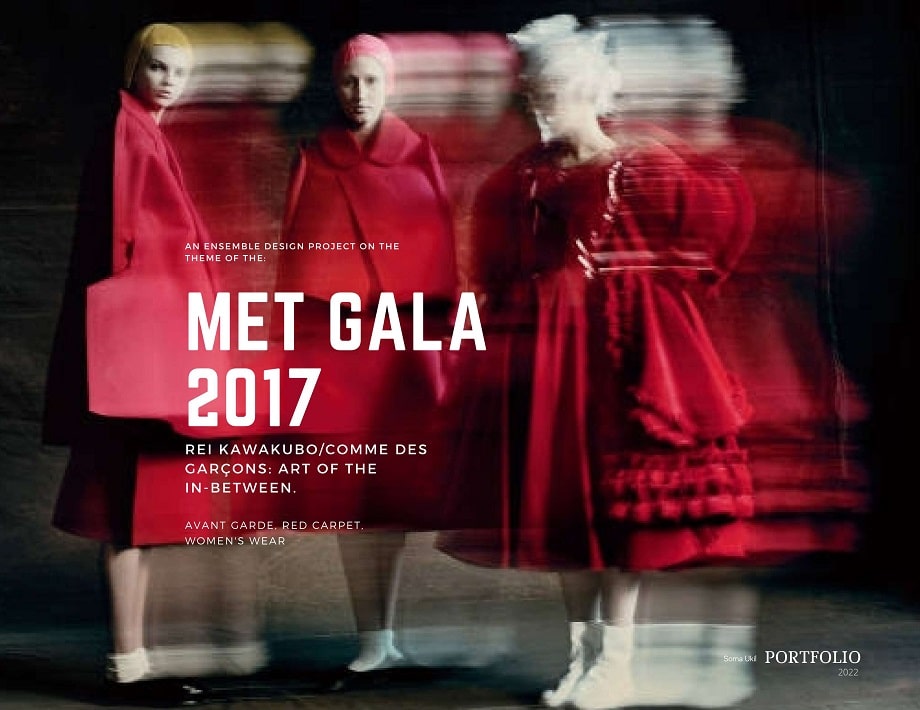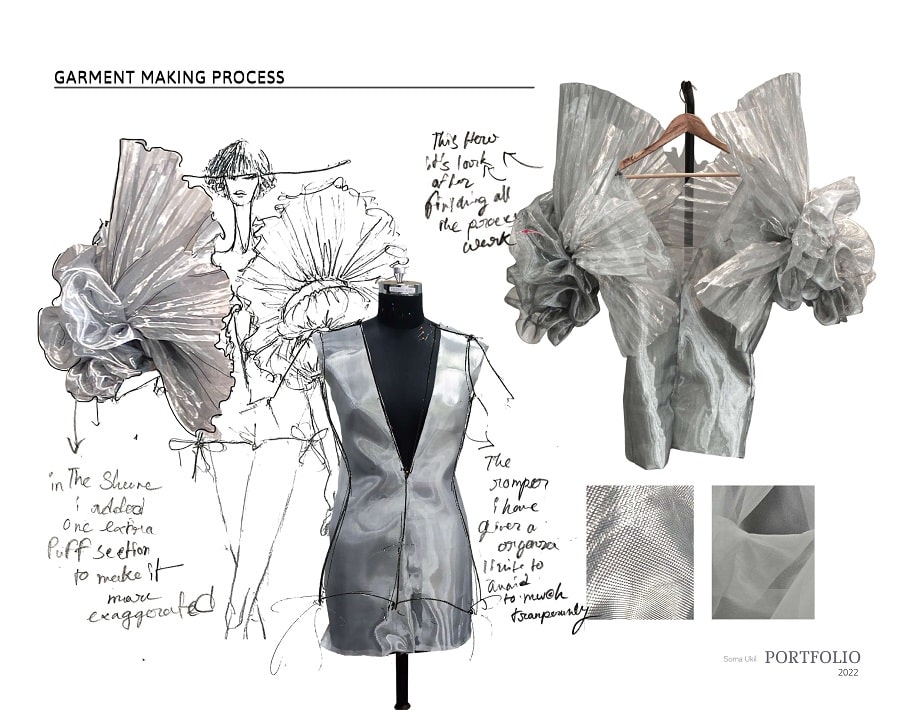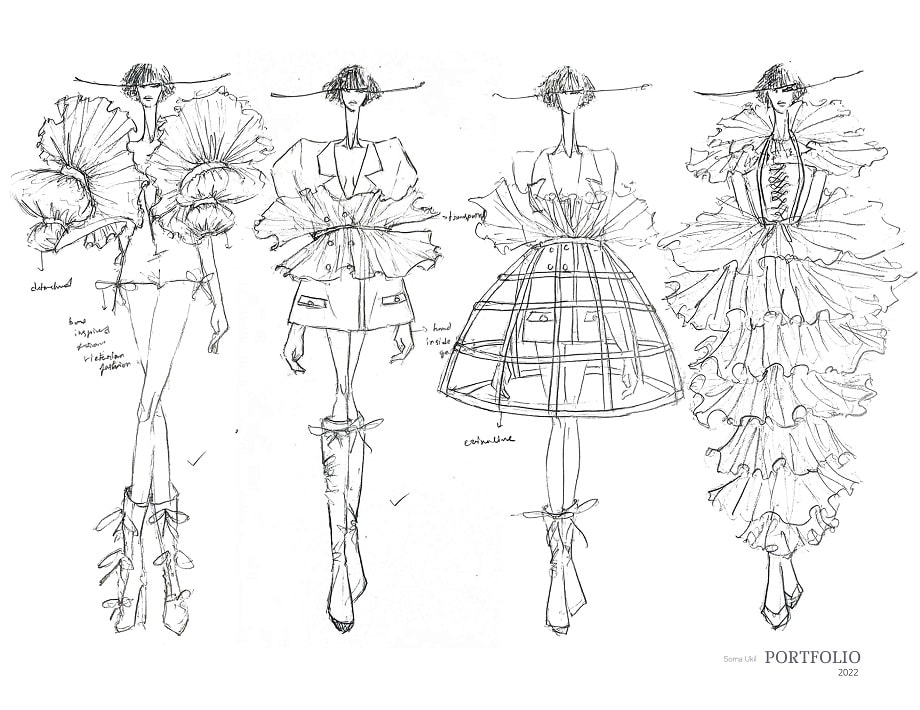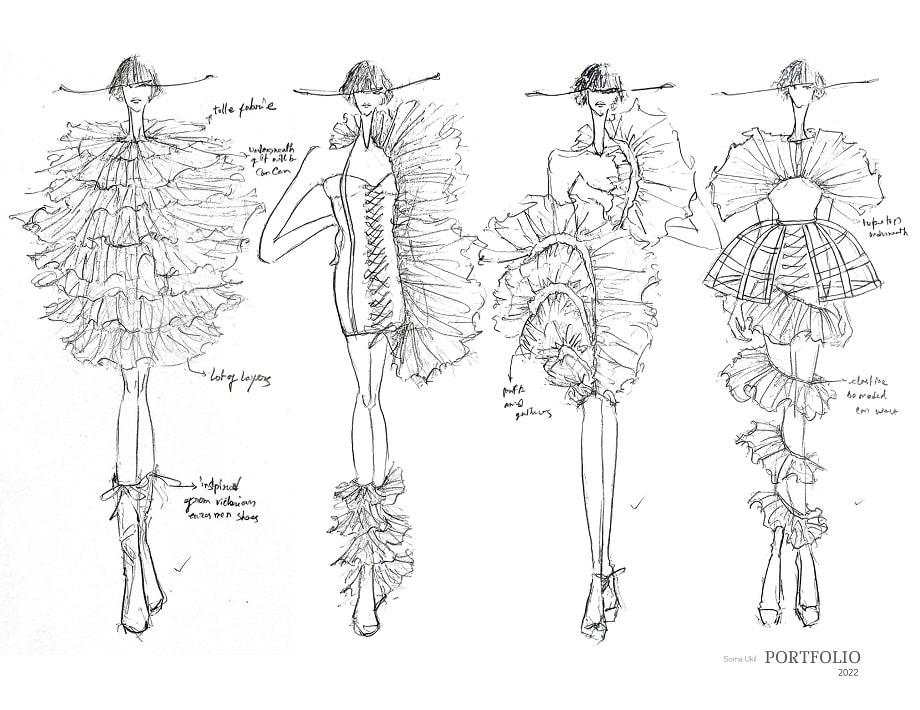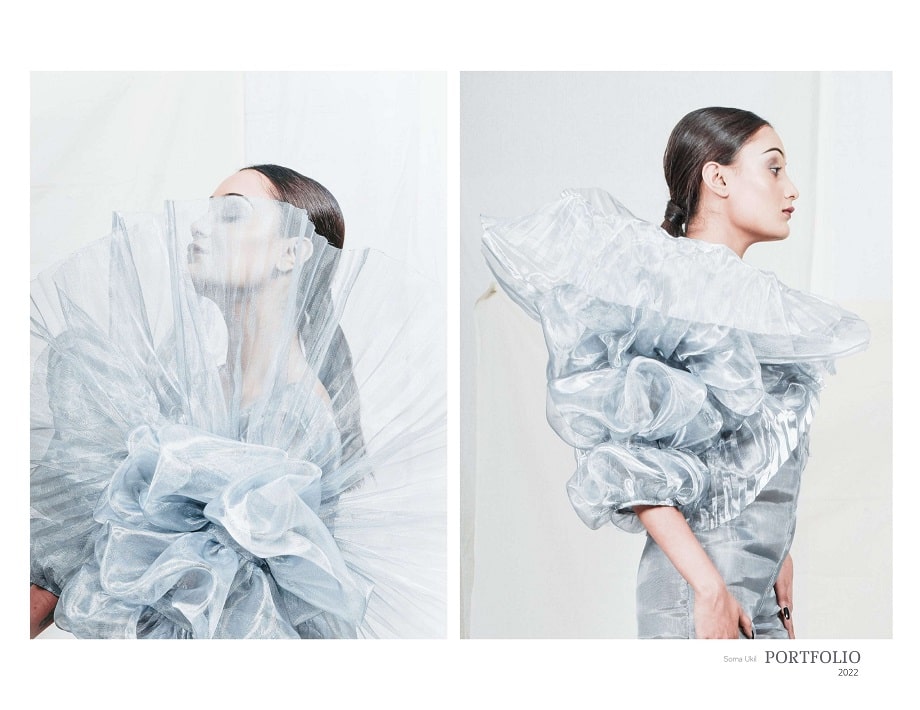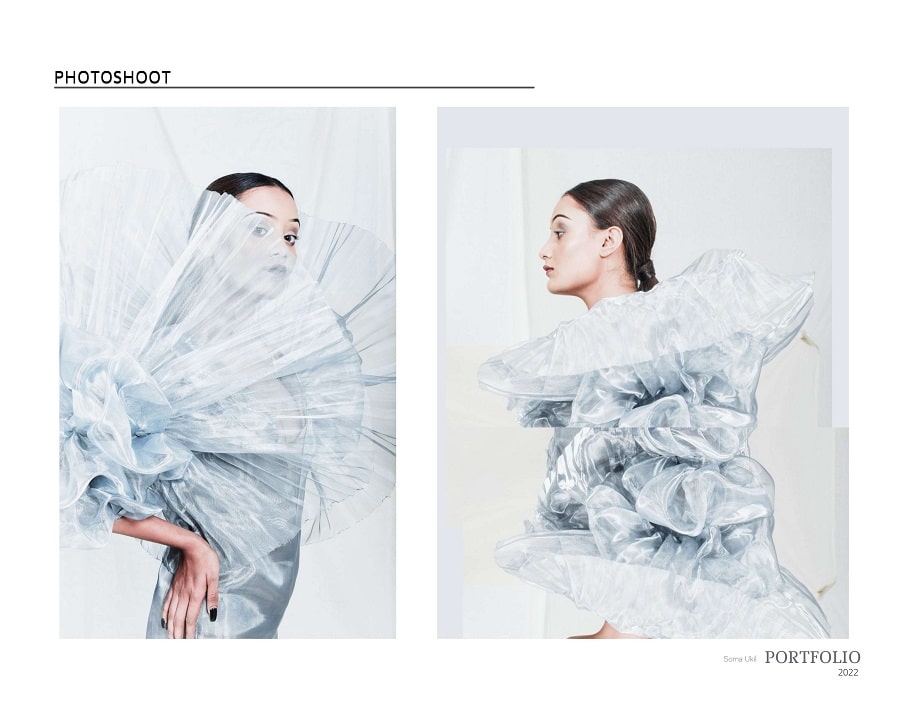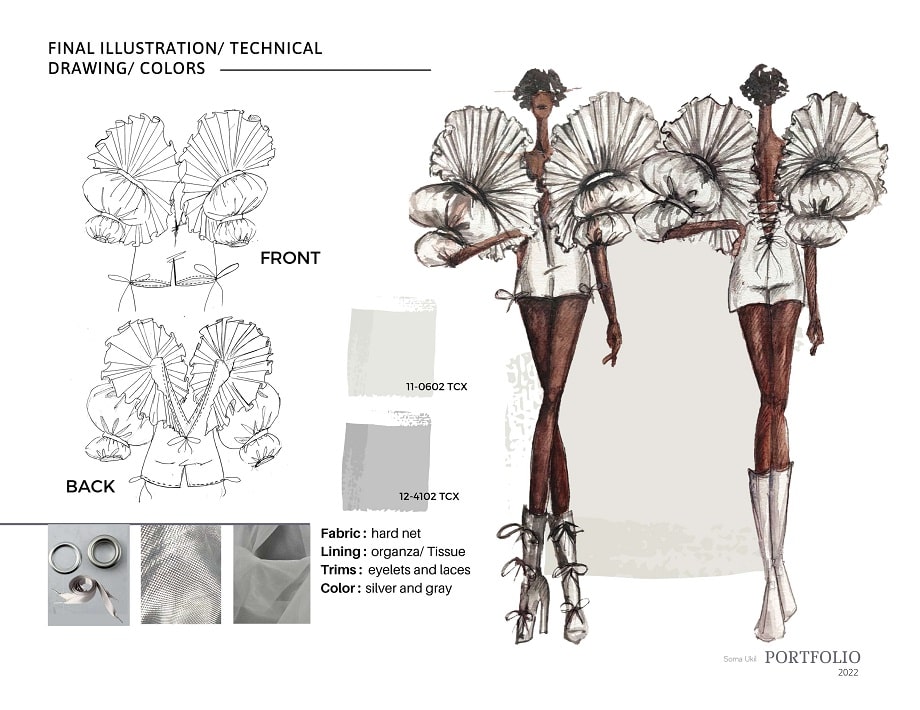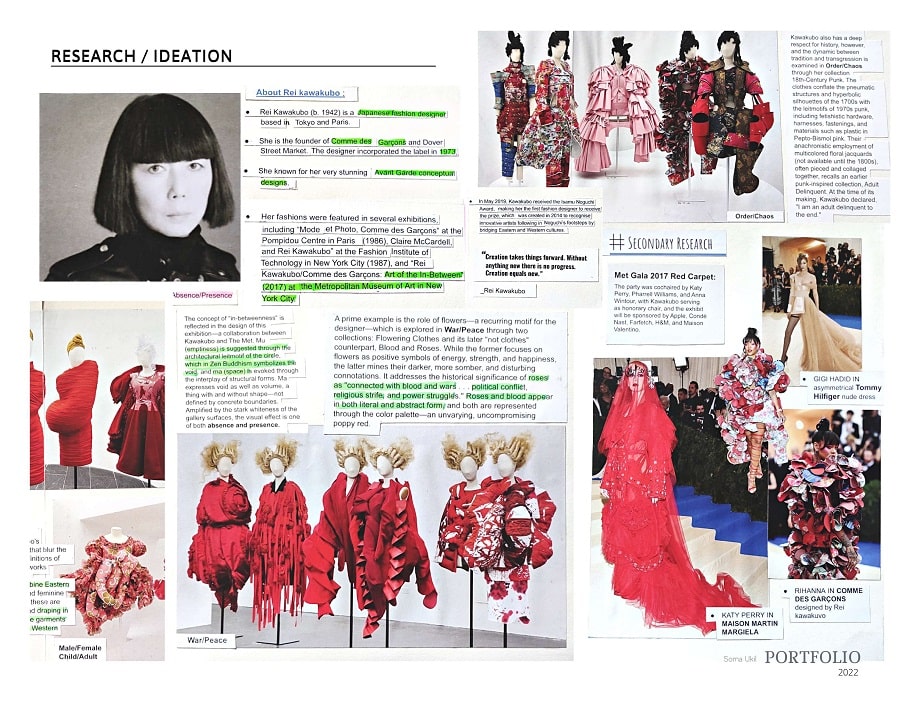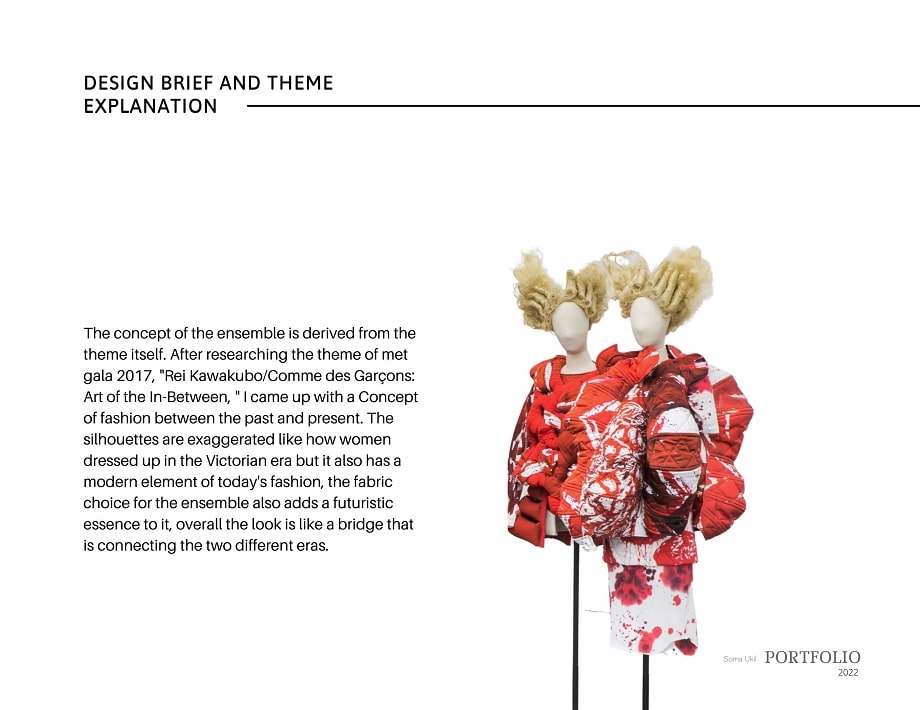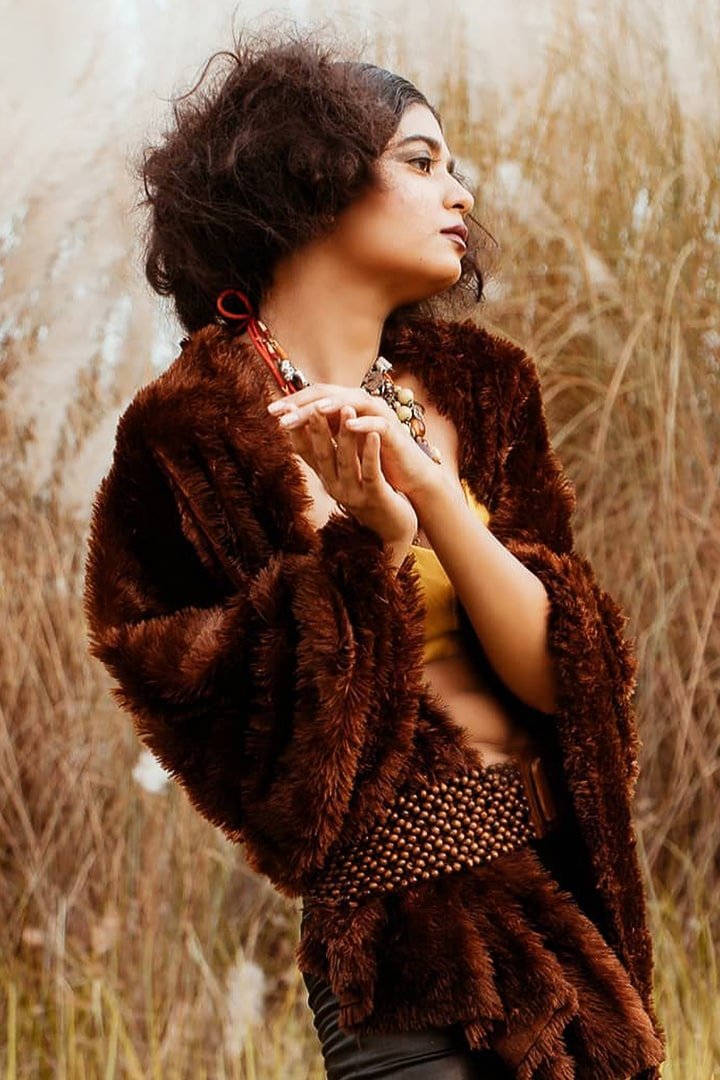MSC FASHION DESIGN COURSE IN KOLKATA
M.SC
FASHION DESIGN & MANAGEMENT

Industry Ready – Post Graduate Programme in International Fashion Management.
The Fashion Management course provided by best design college in Kolkata has been developed to respond to the needs of businesses in the new changing landscape of the fashion Industry in terms of Ethics and sustainability. M.Sc fashion design course in Kolkata, is designed to bridge the space between creative vision and the commercial bottom line. A wild range of cutting edge and traditional practical skills are taught, along with ethical and sustainable professional practices to provide you with the skills to work within an ethical and fair fashion Industry.
- Level: Postgraduate
- Duration: 2 years
- Eligibility: Graduation or Post Graduation in any Discipline with option for final year students (yet to appear for their exams) to apply for provisional admissions. Students have to pass the CET and GDPI exams with a creative aptitute in Fashion Design.
ESEDS School of design being the best fashion design college in Kolkata provides Msc fashion design and management course .The fashion management course has been developed to respond to the needs of businesses in the new changing landscape of the fashion Industry in terms of Ethics and sustainability. The course content is designed to bridge the space between creative vision and the commercial bottom line. Wild range of cutting edge and traditional practical skills are taught, along with ethical and sustainable professional practices to provide you with the skills to work within an ethical and fair fashion Industry globally.
Students will be exposed to key developments and issues related to the global fashion industry. Core aspects of the course will focus on the fashion business, global challenges and solutions in design, sourcing, production, consumption and sustainability in fashion. The course fuses together research, education, practice and business to inspire students to explore new sustainable solutions within the fashion industry with critical analysis and zero waste design.
You will be taught by professional designers and practitioners to allow you to gain firsthand knowledge and experience of the 21st century fashion design industry. The course includes industry internships, live projects, design mentorship, design competitions and industry experiences.
It encourages students to develop:
- an ability to record from direct observation and personal experience;
- an ability to identify and solve problems in visual and/or other forms;
- creativity, visual awareness, critical and cultural understanding;
- an imaginative, creative and personal response;
- confidence, enthusiasm and a sense of achievement in the practice of Art and Design;
- growing independence in the refinement and development of ideas and personal outcomes;
- engagement and experimentation with a range of media, materials and techniques, including new media where appropriate;
- experience of working in relevant frameworks and exploration of manipulative skills necessary to form, compose and communicate in two and/or three dimensions;
- knowledge of a working vocabulary relevant to the subject and an interest in, and a critical awareness of, other practitioners, environments and cultures;
- investigative, analytical, experimental, interpretative, practical, technical and expressive skills.
Year 1 – INCEPTION
The first year of the design course is dedicated to build up the foundation skills in the students with respect to multifarious cross discipline studies, research and projects. This year focuses strongly to strengthen the core and noncore design base of the students through conducting various seminars, lectures, field visits and studio works giving them a hands on approach to different design skills with a global perspective in terms of design visualization, interpretation, expression. Workshops and tutorial will take place throughout the year to develop the practical skills of the students. Students will also learn the historical and cultural context for fashion.
Students will undertake crafts based work experience in the First year.
YEAR 1 OUTCOME – INDUSTRY SUBMERSION (CROSS DISCIPLINARY WORK EXPERIENCE).
Year 2 – EVOLUTION
In this year students takes up their knowledge achieved in their inception year to focus strongly on their chosen field of specialisation in design studies evolving into a more creative individual through design exploration and experimentation with specific research processes and techniques with design experts and mentors. They look more into the alternative processes of design ideation, techniques and production through their in-depth knowledge on research and development with interlinked design modules and thinking processes.
Students will undertake work experience – design internship in the second year.
YEAR 2 OUTCOME – DESIGN CONCIOUSNESS (SPECIALIST DESIGN INTERNSHIP).
| Semester 1 | |
|---|---|
| Category | Course Title |
| Theory | Basics of Fashion |
| Theory | Process of Garment Manufacturing |
| Theory | Fashion Marketing & Merchandising – I |
| Practical | Fashion Design process |
| Practical | Fashion Design process |
| Practical | Fashion Styling & Photography |
| Semester 2 | |
|---|---|
| Category | Course Title |
| Theory | Finance & Economics |
| Theory | Logistics & Resource Management |
| Theory | Fashion Marketing & Merchandising – II |
| Theory | Fashion Communication |
| Practical | Computer Application – II |
| Practical | Lifestyle Journalism |
| Semester 3 | |
|---|---|
| Category | Course Title |
| Theory | Lifestyle Journalism |
| Theory | Consumer Behaviour |
| Theory | Research Methodology (Pre Phd) |
| Theory | Fundamentals of Entrepreneurship |
| Practical | Communication Skills, Grooming & Etiquettes |
| Practical | Visual Merchandising & Window Display |
| Semester 4 | |
|---|---|
| Category | Course Title |
| Theory | Sustainable & Ethical Studies |
| Sessional | Professional Industry Internship (12 Weeks) |
| Sessional | Fashion Event Management |
| Sessional | Masters Project |
The assessment strategy for our design courses uses a perfect balance between summative and formative assessments in order to improve skills not only on core disciplines but also in project planning and time management. Projects are concurrently conducted between all modules in order to improve students’ transferrable skills, allowing them to link skills and competencies from various domains.
An Integral part of the course is the links to profession practitioners and industries, and in particular to this unique course is the connections you will make with ethical and sustainable sectors of the design and textile industry. You will learn how traditional sustainable practices such as ‘ikkat’ textiles, hand loomed weaving, shibori, along with contemporary ethical and sustainable practices such as; ‘peace silk’ and herbal dying can be incorporated into modern contemporary design practices.
Also how organisations such as ‘blue sign’ technologies and ‘Beyond Surface Technologies’ (BST)are working with massive fashion, sports, footwear and apparel companies to create more sustainable products for the mass consumer market.
Students will learn how these important traditional skills and techniques fused with new technologies can provide a design pathway to a sustainable and ethical future.
- Fashion Marketing Head
- Fashion Consultant
- Fashion Entrepreneur
- Assistant Designer
- Fashion Designer
- Creative Head, Merchandiser
- Visual Merchandiser
- Retail Expert & Consultant
- Store owner
- Fashion Photographer
- Blogger, Curator
- Fashion Lecturer
- Researcher
- Textile Designer Graphic Designer
- Image consultant
- Stylist
- Costume Designer
- and many more.

